You’ve got a growing baby bump and, naturally, you want to do everything you can to protect it. Yet, in our modern world, it’s difficult, if not impossible, to avoid potentially dangerous toxins and chemicals altogether.
It’s a common experience for a woman who has discovered she is pregnant to take a closer look at the products in their shower, medicine cabinet, and makeup bag and recoil in fear after seeing all of the scary-sounding chemical names that she has been putting on or in their body, and possibly exposing their fetus to. Fortunately, the dangerous products are easy to avoid, as long as you know what to look for, and there are plenty of safe alternatives you can use to stay looking and feeling at your best throughout your pregnancy. Read on to discover which products you should avoid during pregnancy and what to replace them with.
Anti-aging Creams with Retinoids
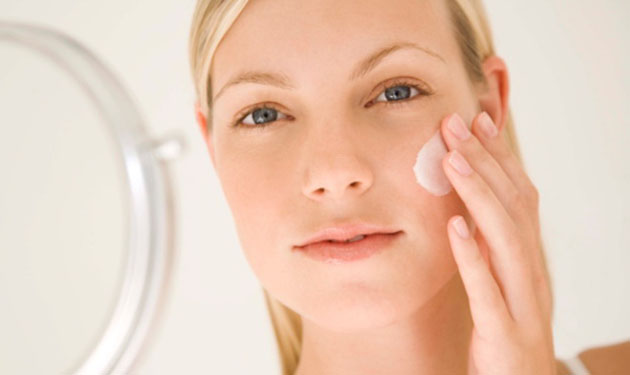
By far, retinoid or retinol-containing products are the number-one type of beauty product you need to avoid during pregnancy. These vitamin-A compounds are associated with birth defects and are classified as category “X”, meaning they are unsafe for use during pregnancy. While oral retinoids, such as the acne medication Accutane, are especially dangerous during pregnancy, topical retinoid creams, such as those found in certain prescription anti-aging and acne medications, are thought to be dangerous during pregnancy as well. While over-the-counter products typically don’t contain retinoids in very high doses, be sure check your anti-aging products for retinoids, as you ideally do not want any retinoid exposure during your pregnancy.
Popular prescription creams with retinoids: Tazorac (tazarotene), Retin-A (tretinoin), Differin (adapelene)
Non-prescription creams with retinoids: Neutrogena Ageless Intensives Deep Wrinkle Serum, Afirm, Philosophy Miracle Worker Miraclulous Anti-Aging Retinoid Pads, anything with “Retinol”, “Retinyl”, “Retinoids”, or “Vitamin A” on the label.
Safe alternatives: Use a retinoid-free moisturizer/anti-aging cream. According to Fit Pregnancy, Aveeno Positively Ageless Rejuvenating Serum is a good anti-aging cream for pregnant women.
Acne products with salicylic acid
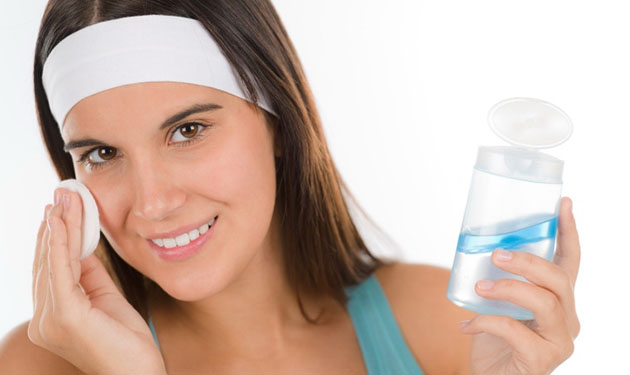
Salicylic acid is a chemical that belongs to the aspirin family. It has a mild peeling effect, and is thus used to chemically exfoliate skin to help with acne. Beta hydroxyl acid (BHA) is another form of salicylic acid. While salicylic acid has only been shown to cause birth defects and other pregnancy complications when taken orally, it is also best to avoid topical salicylic acid as well. Very small amounts of topical salicylic acid to spot treat acne may be safe, but it is important to avoid using salicylic acid scrubs and face/body peels containing salicylic acid if you are pregnant.
Safe alternatives: Use a gentle cleanser and oil-free cosmetics to help reduce pregnancy acne. See if your doctor can prescribe a safe topical antibiotic if pregnancy acne is severe.
Sunless tanning products
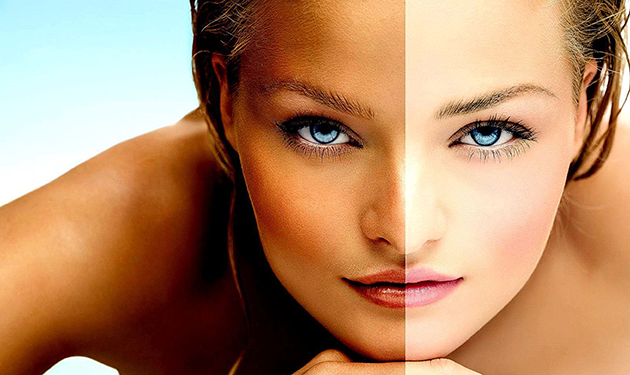
Sunless tanning products, including self-tanning sprays and lotions, as well as the spray-on tans you get at a tanning salon, contain the product dihydroxyacetone, or DHA. Some studies have shown DHA to be mutagenic, or to cause mutations. While DHA is not absorbed by the skin, particles of this chemical tanning agent may be inhaled during application, particularly when spray-on products are used. The effects on pregnant women have not been extensively studied, but it is best to avoid this product in pregnancy.
Safe alternatives: While UV tanning isn’t recommended during pregnancy (especially not in the case of tanning beds, which can potentially elevate your body temperature to unsafe levels for pregnancy), there’s nothing wrong with going outside and getting a little sun each day. While providing your skin with some natural color (though you should not expose your skin to the point that you burn or tan deeply), small amounts of sun exposure during pregnancy can help increase your vitamin D levels and provide mood-boosting effects to combat pregnancy depression. Keep in mind that your skin may be more sensitive to sunlight during pregnancy.
Hair treatments
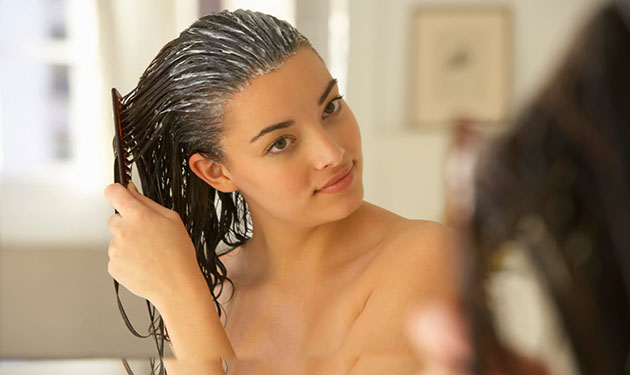
The effects of hair dye and straightening treatments on pregnant women are not well-examined, but some studies have shown that hair salon workers who are exposed to these harsh chemicals on a regular basis are at increased risk for cancer and adverse pregnancy outcomes. Little, of any, of these products is absorbed through the skin; however, breathing in these chemicals for extended periods of time may be a concern. While some doctors may approve an occasional hair dye or treatment during pregnancy, be sure your facility is well-ventilated or take the proper ventilation precautions if dying your hair yourself at home. To be on the safe side, avoid getting any hair treatments in your first trimester of pregnancy.
Safe alternatives: According to BabyCenter, pure Henna (Lawsonia inermis) dye, which provides a red-orange color, is considered safe. Fast-acting or colored henna is not pure and may contain potentially dangerous chemicals or metals.
Products with phthalates
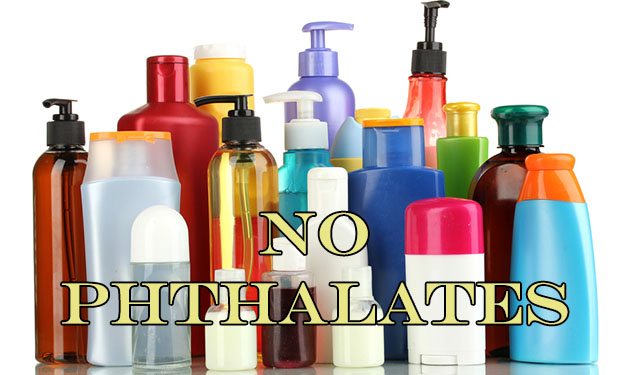
Phthalates are plasticizing agents found in certain cosmetics and beauty products. This group of chemicals has not been proven to cause birth defects in humans, but animal studies indicate these compounds have disturbing reproductive effects, disrupting hormonal levels and interfering with male sexual development. Unfortunately, these substances are not typically listed on product labels; however, there are some ways you can avoid them. Avoid products with strong fragrances (including products that use the word “fragrance” on the label), as these commonly contain phthalates. These include body sprays, room sprays, body washes, and many others. Phthalates are also found in nail polish and hair spray – though these chemicals aren’t absorbed through the nails or hair, they may be inhaled during application.
Safe alternatives: To minimize phthalate exposure from nail polish and hair spray during pregnancy, WebMD recommends using a nail polish that is labeled as phthalate-free or polishing nails in a well-ventilated area, and using a hair mousse or gel instead of a spray that gets in the air. When it comes to scented skin products like body washes, lotions, and sprays, choose phthalate -free products made from natural ingredients, and check labels for the word “fragrance.”
Hair removal creams
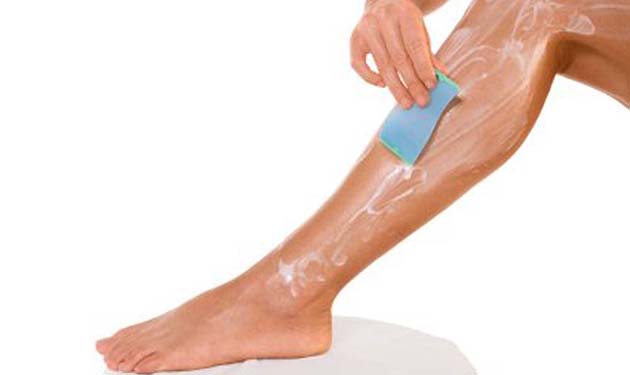
Hair removal/minimizing creams, also called depilatories, commonly contain a chemical called thioglycolic acid. This is a harsh, irritating chemical whose reproductive effects are not known – but the fact that it is strong enough to cause the hair to separate from your skin is not a good sign. To hide the strong scent of this chemical, hair removal creams typically contain strong fragrances, which may contain phthalates. To be on the safe side, avoid these harsh products.
Safe alternatives: Shave or wax instead. It is a myth that shaving causes body or facial hair to grow back darker or thicker.
(Some) herbal products

While most women take a good look at any medications they are taking during pregnancy, fewer may stop to think about herbal supplements they are taking. Nevertheless, “natural” does not always mean “safe.” Dangers can be especially pronounced if the herbal product is taken orally. Some herbs act as uterine stimulants, have hormonal effects, or may cross the placenta. Avoid the following herbs during pregnancy, as they are classified as “Unsafe” or “Likely Unsafe”:
Black Cohosh – when used orally
Blue Cohosh – orally
Dong Quai – orally
Ephedra – orally
Goldenseal – orally
Passionflower – orally
Pay D’Arco – orally in large doses
Pennyroyal – orally or topically
Roman Chamomile – orally in medicinal amounts
Saw Palmetto – orally
Yohimbe – orally
Aloe, evening primrose, feverfew, ginseng, kava kava, and senna are also categorized as “Possibly Unsafe” when used orally in pregnancy, and the same goes for rosemary when it is used orally in medicinal amounts.
Safe alternatives: Talk to your doctor about which, if any, herbal supplements or topical products are safe to use in pregnancy. Generally, red raspberry leaf, ginger, and peppermint leaf, are considered safe and even beneficial during pregnancy when taken in the amounts contained in foods or teas.
Other crazy chemicals
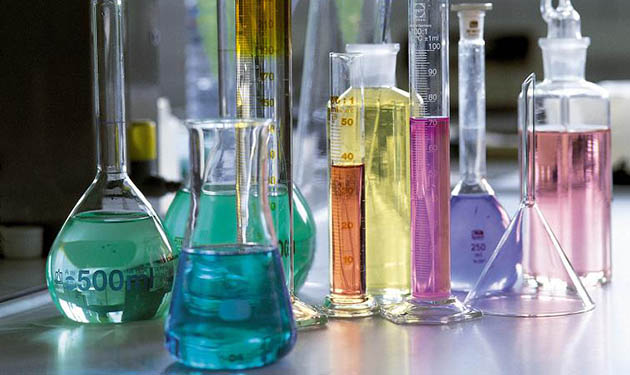
In addition to the substances described above, there are many other potentially dangerous chemicals lurking in personal care products, including soaps, lotions, makeup, deodorants, and others. These have not been definitively proven to cause problems during human pregnancy at the small levels in which they are contained in beauty products, though chemicals like formaldehyde are classified as a “probable carcinogen” and research into the potentially dangerous effects of substances like parabens in pregnancy is ongoing.
As a general rule, it’s a good idea to buy mostly natural, organic personal care products, and to check health and beauty products for the following potentially harmful ingredients before you make a purchase. Natural personal care products are often sold at health food stores and online. To help ease your mind a bit, note that if you are applying the product to a small amount of your skin surface area (less than 10 percent), the risks are relatively low. Talk to your doctor if you have questions or concerns about these or other chemicals found in health and beauty products in regards to your pregnancy.
Parabens (benzylparaben, methylparaben, propylparaben, butylparaben)
Sodium lauryl sulfate or sodium laureth sulfate
Formaldehyde (imidazolidinyl urea, diazolidinyl urea, quaternium-15, DMDM hydantoin, 2-bromo-2-nitropropane-1,3-diol or bronopol, sodium hydroxylmethylglycinate)
Artificial colors (Red 28 Lake Aluminum, Red 30 Lake Aluminum, CI 75470, Acid Yellow 23 Lake Aluminum)
Triclosan
Oxybenzone*
Methylisothiazolinone (MIT)
Hydroquinone
Mercury compounds (phenylmercuric salts, acetate, nitrate)
PEG 20
Propylene glycol
Sodium benzoate
*Oxybenzone is an active ingredient in many sunscreens, which has been shown to be absorbed by the skin of the wearer. While it has been linked in one study to low birth weight in girls, the evidence against its use in pregnancy is not conclusive and some experts say its benefits (preventing skin cancer) outweighs its potential risks. However, there are safer alternatives, including sunscreen made with the minerals like zinc oxide and titanium dioxide, which block sunrays without being absorbed by the skin.
